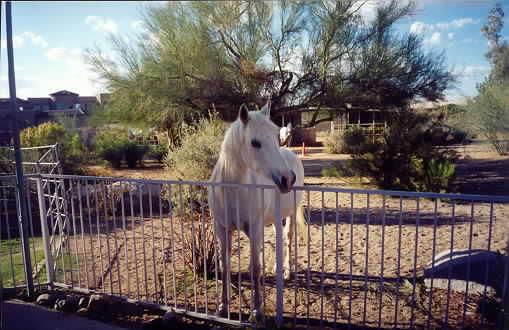
Let’s Discuss: When a Horse Dies
How do you come to terms with loss?
“There’s nothing deader than a dead horse,” my friend Frances said through her tears on the phone. She had just put down her charge, Braveheart, a rescued Clydesdale/Thoroughbred. Another friend, Mary Jane, phoned me sobbing in January that she found her beloved Waco dead in his stall. Through my own tears, I struggled with what to say – to not sound insipid or send them further into the depths by trying to buck them up. The human struggle – what do you say, what do you do – when a horse dies — lacerating the heart of his human?
Braveheart survived the kill auction, was rescued and lived several productive, comfortable years at Frances’ farm. On Tuesday, she found him in his stall unable to get up. He was calm, not in pain and still interested in the sound of his treat wrapper. The vet did everything reasonable in order to make sure they had tried. Frances nodded and the vet put Braveheart down. Frances wept.
Waco’s gorgeous blond head was not poking out of the barn window looking for Mary Jane to come with breakfast. She found him dead in his stall. He had enjoyed most of his dinner and drank some of his fresh water. She could see no pain or strain on his body or signs of trauma in his stall. He just died. Mary Jane sobbed – to the point I feared for her.
I was taking a riding lesson when I saw Jan meet the vet near the barn. She led old Mom out. Old Mom took her shot and dropped like a stone. Jan covered her with a tarp to protect her from the buzzards until they could bury her. Jan had a ranch to run and lessons waiting. Mom had suffered with colic. Jan knew she did the right thing for the old horse. The day went on.
Nimrod had carried all of us on the arduous trail rides at Big South Fork. He was lithe and strong and the one horse that you knew would always get you home. The stoic Tennessee Walking Horse, in his late 30s, with few teeth and no longer working, was first at the gate for breakfast and stood at the fence waiting and wondering why he wasn’t being saddled. One sunny morning, he lay in the grass on the top of his favorite hill and died. Tough wrangler, Larry, Nimrod’s owner and caregiver stood and cried.
Rhaddy, my sister’s Polish Arabian, her first horse, had that big eyed look that old gray mares get in their late 30s. My sister used to walk Rhaddy through the neighborhood on a lead line, like a big dog, to help with her arthritis. The day that it was over, Rhaddy’s stall-mate called for her. We hung a wind chime to help with the emptiness and silence.
What do we say? What do we do? Let’s share our tears here – with those who understand.
Tell about the loss of a horse you know.
What did anyone say or do that helped you?
What did you say or do to help someone else with their loss?
Horses become part of who we are. Our horse — with the silent, knowing eyes and grassy breath and kiss-spot on her nose and pat-able round rump takes hold of our life. Our dead horse never releases that hold.








Leave a Comment